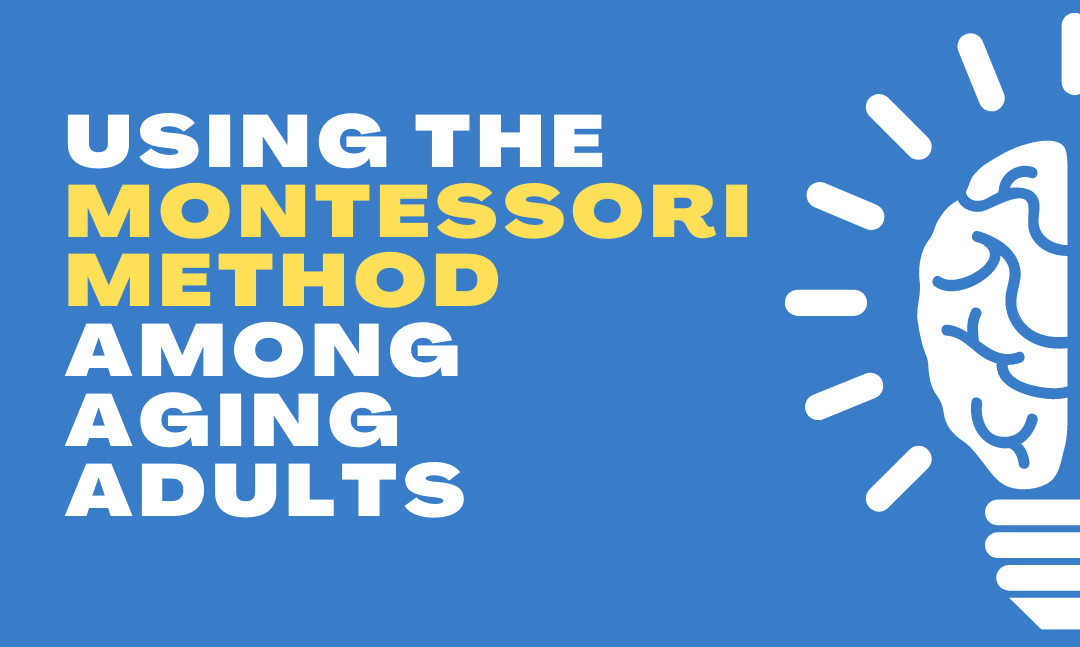Most Montessori schools provide educational opportunities for children from 18 months to 14 years. It’s based on the biological development of the child, so it’s uncommon that the methods are used in traditional adult educational settings.
However, scientists and researchers have uncovered a unique setting in which the Montessori Method is especially impactful – in the care and treatment of aging adults with memory loss and dementia. Starting in 2014, the Association Montessori Internationale partnered with dementia experts to form the Montessori Advisory Group for Dementia and Ageing. Since MAGDA’s development, they have set standard practices and quality indicators to guide professionals through Montessori education and treatment programs for adults.
What is special about this program, and why is the Montessori Method impactful among aging adults? We’ve outlined MAGDA’s three key reasons below.
The Montessori method emphasizes independent choice, adding dignity to patient care.
Montessori environments display materials in a welcoming, accessible manner, allowing students to explore them at their own pace and according to their preference. For adult patients with dementia and memory loss, this allows them to invest time and energy into the memory-strengthening activities that they find interesting or enjoy. While guided lessons prepared by health care professionals are still a great option for many adult students, introducing choice to educational activities promotes similar outcomes while adding dignity to the process.
The Montessori Method creates consistent patterns, supporting recollection.
In a Montessori environment, materials are placed in the same locations. Standard practices, like environment cleaning and management, are conducted daily. These patterns and routines are especially helpful to aging adults with memory loss and dementia as they create memory cues.
The Montessori Method promotes self-care and community engagement, strengthening peer relationships.
Working alongside one’s peers is a critical part of the Montessori method. In traditional Montessori environments for children, students work together to learn through material exploration. More experienced students share lessons and knowledge with their younger peers, and both students are enriched in the process. The same is true for aging adults with dementia and memory loss. Each adult in the learning space has a different memory capacity. By working together, students strengthen each other’s skills and build a sense of camaraderie. This not only promotes the development of an empathetic, welcoming community, it also creates memory cues that can support health outcomes.
Though the Montessori Method was developed for children, its principles can be applied much more broadly, as MAGDA demonstrates. Learn more about this program and its innovative approach online.

